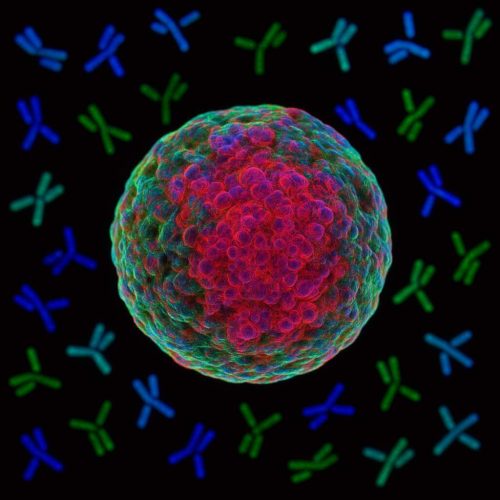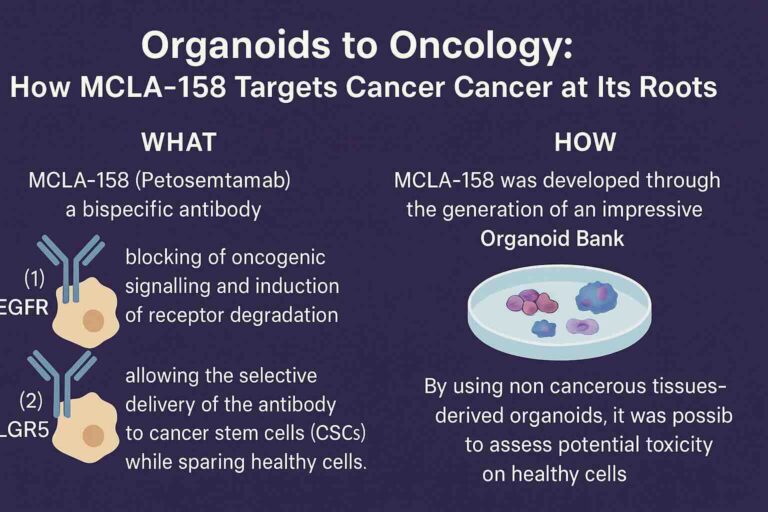Recently, the FDA announced plans to phase out animal testing requirements for the development of monoclonal antibodies (mAbs), in favor of more human-relevant methods (1).
Among the proposed alternative approaches are:
This move signals a strategic shift toward faster drug development processes while reducing the reliance on laboratory animals.

A great example of how patient-derived organoids can speed up early drug discovery is the development of MCLA-158 (petosemtamab) by the biotech company Merus N.V. in collaboration with research teams at IRB Barcelona.
MCLA-158 (Petosemtamab) is a bispecific antibody that targets (2):
👉🏻 EGFR (epidermal growth factor receptor): blocking of oncogenic signalling and induction of receptor degradation
👉🏻 LGR5 (leucine-rich repeat–containing G-protein–coupled receptor 5): allowing the selective delivery of the antibody to cancer stem cells (CSCS) while sparing healthy cells.
Altogether, its mechanism of action (MoA) relies on the simultaneous shut down of the oncogenic EGFR-driven proliferation of cancer cells while targeting the disease reservoir of CSCs. Moreover, MCLA-158 could block metastasis initiation in preclinical in vivo models (2).
MCLA-158 was developed through the generation of an impressive Organoid Bank using primary samples from cancer patients.
By using non cancerous tissues-derived organoids, it was possible to assess potential toxicity on healthy cells.
The use of Merus´proprietary technology, the Biclonics® platform, allowed the functional screening of the organoids, leading to the generation of a scalable Ab characterised by enhanced ADCC.

MCLA-158 is currently being evaluated in Phase 1/2/3 trials for different solid tumors (3):
– Metastatic colorectal cancer (mCRC).
– Head and Neck Squamous Cell Carcinoma (HNSCC).
– Future directions: clinical studies with MCLA-158 in gastric/esophageal cancers.

Pingback: Genmab acquires Merus to strengthen its antibody-based clinical portfolio – ianghezzi.com